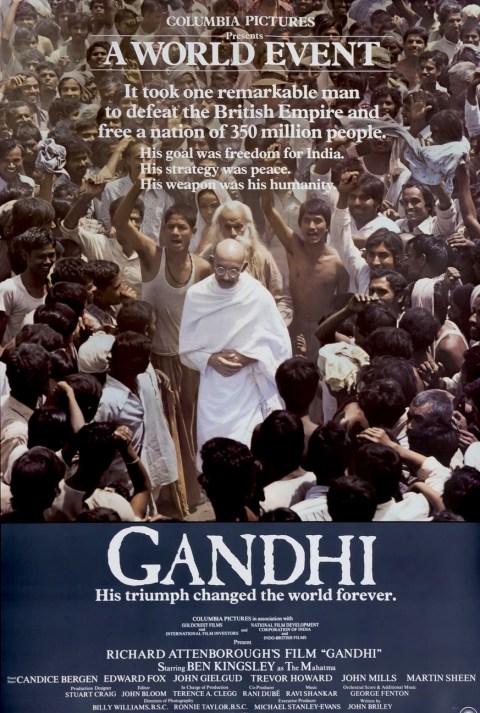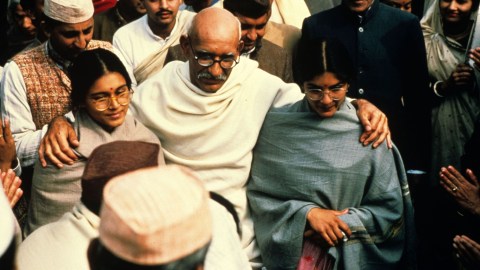17. 4. – 19. 4. 2026
Gandhi

 Original title: Gandhi
Original title: GandhiDirector: Richard Attenborough
Production: 1982, UK / India
Length: 188 min.
Annotation for KRRR! 2010
Gandhi is a three-hour-long historical epic film, awarded eight Oscars, which captures key moments in the life of Mahatma Gandhi, one of the key figures of the Indian independence movement. It took its director Richard Attenborough almost twenty years to film the script, which was based on the biographical book by Louis Fischer. It was not successful with the British EMI or in Hollywood. It was only in 1982 that Attenborough collected sufficient funds (the total cost of the film did not exceed twenty million dollars) from various sponsors and was able to start making the film (shooting took twenty-six weeks). The film begins in 1948 with Gandhi's violent death and the subsequent state funeral, during which hundreds of thousands of extras appear in front of the camera lens. Thanks to the fact that the film exposes the final scene of the life story of the icon of the fight against the colonial rule of Great Britain right at the very beginning, it significantly changes the "reading" of the entire story. The circular composition does not allow for a surprising and pointed conclusion (which is not very possible in the biographical film genre anyway), but on the other hand it brings a new aspect to the game. The viewer watches the entire film with the knowledge of what is to come. All the deeds and events that Gandhi performed, all the honors he received, are constantly subordinated to the perspective of his violent and essentially meaningless death. Attenborough's film depicts events from more than fifty years of Gandhi's life. We see him, still a young, newly graduated lawyer, being forcibly thrown out of a first-class compartment because of his origin. According to the film's authors, this is where Gandhi's nonviolent struggle and policy of civil disobedience against discrimination began. In 1915, Gandhi moved to India, where he continued his "mission". Unlike most other Indian politicians who live in wealth and luxury, he chooses an ascetic lifestyle in order to come as close as possible to the conditions of ordinary Indians living on the brink of famine. As the minutes pass, the film, which is sometimes too descriptive, wordy and perhaps too adoring of Gandhi, begins to build towards a fundamental conflict. However, this conflict is not, as expected, between Indians and Great Britain, but between various religious and ethnic groups in India itself. The violent clash, which culminates in a series of massacres and the division of the country into India and Pakistan, almost completely breaks Gandhi's will to live. Thus, at the end of his life, Gandhi finds himself back at the beginning. He has achieved his main goal, an independent India, but at a price he never wanted to pay. Gandhi's moral idealism proved to be supportive only for a certain period of time, before the particular interests of individual political groups prevailed. The power of this almost thirty-year-old work is not only due to the "magnetic" attraction of Mahatma Gandhi's personality, but above all thanks to Ben Kingsley, who played one of the roles of his life in it.